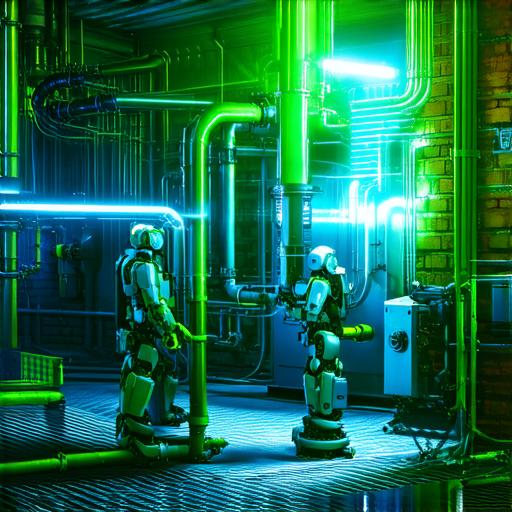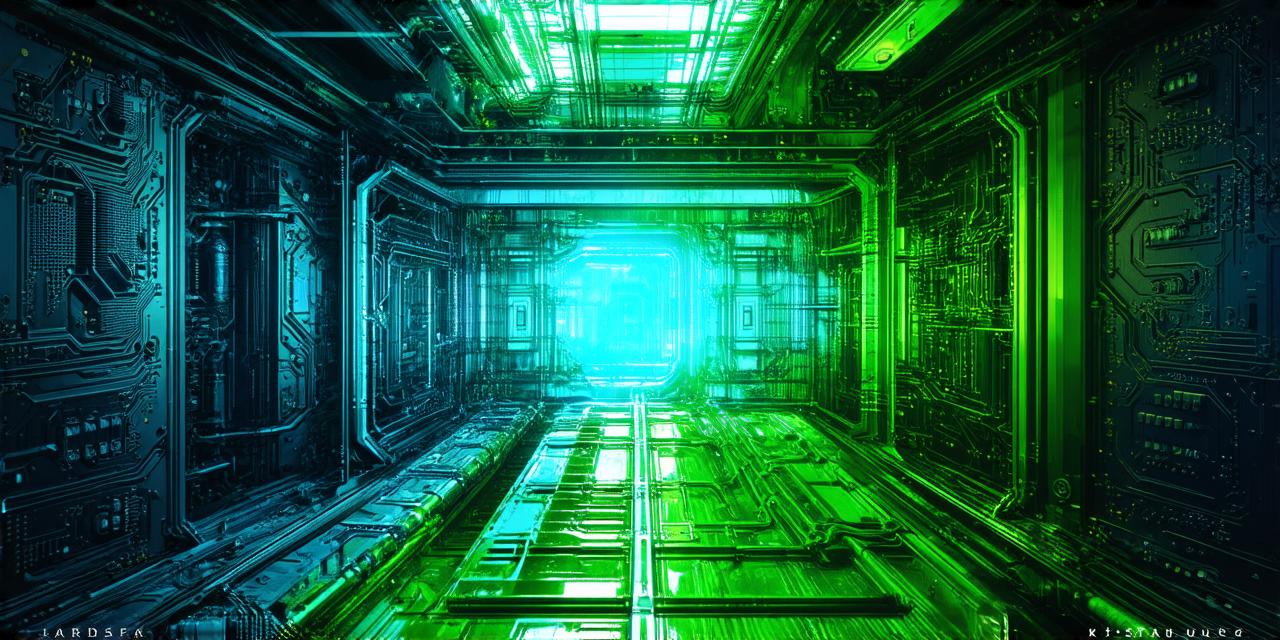I. Introduction
The term “metaverse” is often associated with virtual worlds and science fiction, but the reality is much more complex. The industrial metaverse refers to the integration of physical and digital worlds in various industries, creating a new paradigm for business and society as a whole. In this guide, we will explore what constitutes the industrial metaverse, its benefits and challenges, and how it can shape the future of work, healthcare, and more.
II. What is the Industrial Metaverse?
The industrial metaverse refers to the integration of physical and digital worlds in various industries, including manufacturing, construction, healthcare, retail, and more. The goal of the industrial metaverse is to create a seamless connection between physical assets, data, and people, enabling real-time decision making and improving overall efficiency.

A. Physical Assets
Physical assets are physical objects or machinery that are used in various industries to produce goods and services. These assets can be anything from manufacturing equipment to buildings to vehicles. The industrial metaverse allows businesses to digitize these assets, enabling real-time monitoring of their performance and maintenance needs. For example, a manufacturer can use sensors to monitor the temperature and pressure of its machines, detecting potential issues before they cause downtime or damage to the asset.
B. Data
Data is essential for decision making in any industry. The industrial metaverse allows businesses to collect and analyze vast amounts of data from various sources, including sensors, cameras, and other digital tools. This data can be used to optimize production processes, improve supply chain management, and enhance customer experiences. For example, a retailer can use data analytics to track consumer behavior and adjust its inventory levels accordingly, reducing waste and increasing sales.
C. People
People are an essential part of any industry. The industrial metaverse allows businesses to connect their employees with the digital world, enabling remote work, training, and collaboration. For example, a construction company can use AR and VR technology to provide virtual tours of construction sites, allowing remote workers to visualize the project and collaborate with on-site teams in real time.
III. Benefits of the Industrial Metaverse
The industrial metaverse offers numerous benefits to businesses across various industries, including increased efficiency, cost savings, improved customer experiences, and more.
A. Increased Efficiency
By integrating physical and digital worlds, businesses can optimize their production processes, reduce waste, and improve overall efficiency. For example, a manufacturer can use data analytics to identify bottlenecks in its supply chain, enabling it to adjust production schedules and reduce downtime.
B. Cost Savings
The industrial metaverse can help businesses reduce costs by improving resource management and reducing waste. For example, a construction company can use AR and VR technology to visualize building designs, reducing the need for physical models and prototypes.
C. Improved Customer Experiences
The industrial metaverse can enhance customer experiences by enabling businesses to provide personalized and immersive digital experiences. For example, a retailer can use data analytics to track consumer behavior and adjust its inventory levels accordingly, reducing waste and increasing sales.
IV. Challenges of the Industrial Metaverse
While the industrial metaverse offers numerous benefits, it also presents several challenges that businesses must overcome. These challenges include cybersecurity risks, data privacy concerns, and the need for specialized skills and expertise.
A. Cybersecurity Risks
The integration of physical and digital worlds creates new vulnerabilities to cyber attacks. Businesses must ensure that their digital systems are secure and protected against hacking, malware, and other cyber threats. For example, a manufacturer must ensure that its sensors and data analytics tools are secure from cyber attacks that could disrupt production processes or steal sensitive information.
B. Data Privacy Concerns
The industrial metaverse involves the collection and analysis of vast amounts of personal data.
